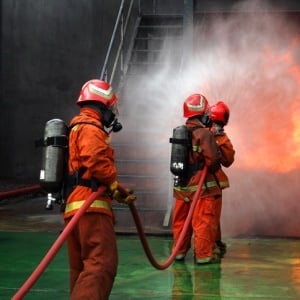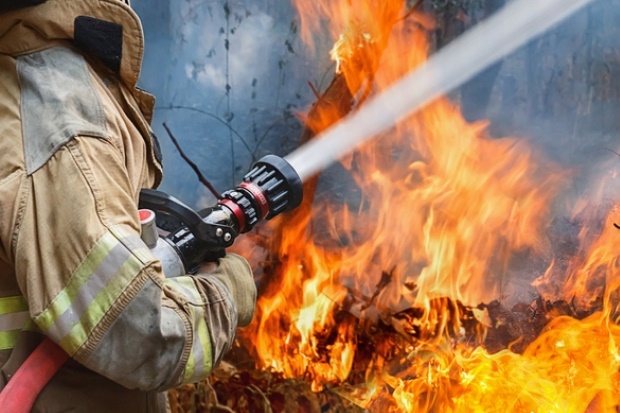
Firefighting is risky job. Firefighters are exposed to heat, a great deal of of physical and mental stress, as well as toxic materials like gases.
Intense heat and strain appear to put firefighters at a greater risk of heart attack, a new study finds.
The physical demands of firefighting may trigger the formation of blood clots and impair blood vessel function – two factors associated with increased risk of heart attack and stroke, researchers in Scotland report.
Physiological changes
Their report helps explain why heart disease is the leading cause of death among "the bravest", as they're known. In the United States, heart disease accounts for nearly half of annual on-duty firefighter fatalities, most of them from heart attack, said Dr Nicholas Mills, lead researcher on the study.
Mills is chair of cardiology at the University of Edinburgh.
In simulated fire exercises, the investigators sought to quantify the physiological changes firefighters undergo as they rescue a victim from a scorching building.
"We discovered the core body temperature increased, on average, about 1°C over a period of 20 minutes," Mills said. "And increases in haemoglobin [the protein molecule in red blood cells that helps blood clot] occur as the body loses water and the blood gets more concentrated."
The study results highlight the unique stress to the cardiovascular system that firefighters face, said Dr Stefanos Kales, an associate professor at Harvard Medical School.
Out of control fires like the fires that raged across the Cape Peninsula a few years ago can also affect members of the public, especially those who suffer from allergies. Under these circumstances sufferers should stay indoors to and limit the risk of their allergies being triggered by the high levels of “particulate matter” in the smoky air.
Uniquely dangerous
The findings should encourage medical practitioners to pay closer attention to this group's unique needs, added Kales, who wrote an editorial about the study. Both appear in Circulation.
This might include keeping firefighters with signs of existing heart disease from participating in strenuous emergency duties, Kales noted.
"Firefighting is uniquely dangerous for obvious reasons and more stressful on the heart. First, there is a large adrenaline surge in response to the emergency response that begins to raise heart rate and blood pressure," Kales said.
"The firefighter [unlike most athletes] wears 18 to 23 kg of gear, which increases the workload and also encapsulates the firefighter, impairing all usual means of dissipating heat," he added.
Additionally, there are extraordinarily high heat and smoke-related toxins, Kales said.
Mills and his team studied 17 healthy members of the Scottish Fire and Rescue Service who participated in two fire simulation exercises a week apart. The participants attempted to retrieve a mock victim weighing approximately 80kg while exposed to temperatures approaching 400°C.
Combination unique to firefighters
The researchers monitored each firefighter's heart rate and blood pressure for 30 minutes before the exercises and for 24 hours following the drill. The findings showed that many were prone to a reduction in blood pressure and an increase in blood clotting.
Mills concluded that these changes are most likely due to dehydration and an increase in blood diverted to the skin to help the body cool down.
The study authors suggested that some of these health risks can be reduced inexpensively with limited heat exposure, cooling and rehydration.
"The combination of extreme physical exertion and heat is unique to firefighters, so the findings are not directly applicable to the public," Mills added. However, the combination of heavy physical exertion, soaring heat and air pollution can present an increased risk in everyday life, he said.
"As such, we recommend that anyone who is exercising in high ambient temperatures should take regular breaks, keep well hydrated and allow time to cool down afterwards," Mills said.
Read more:
FSI sleuths to tackle Cape fires
How we can prevent deadly fires in South African homes
Chemical in smoke a health risk




 Publications
Publications
 Partners
Partners
















